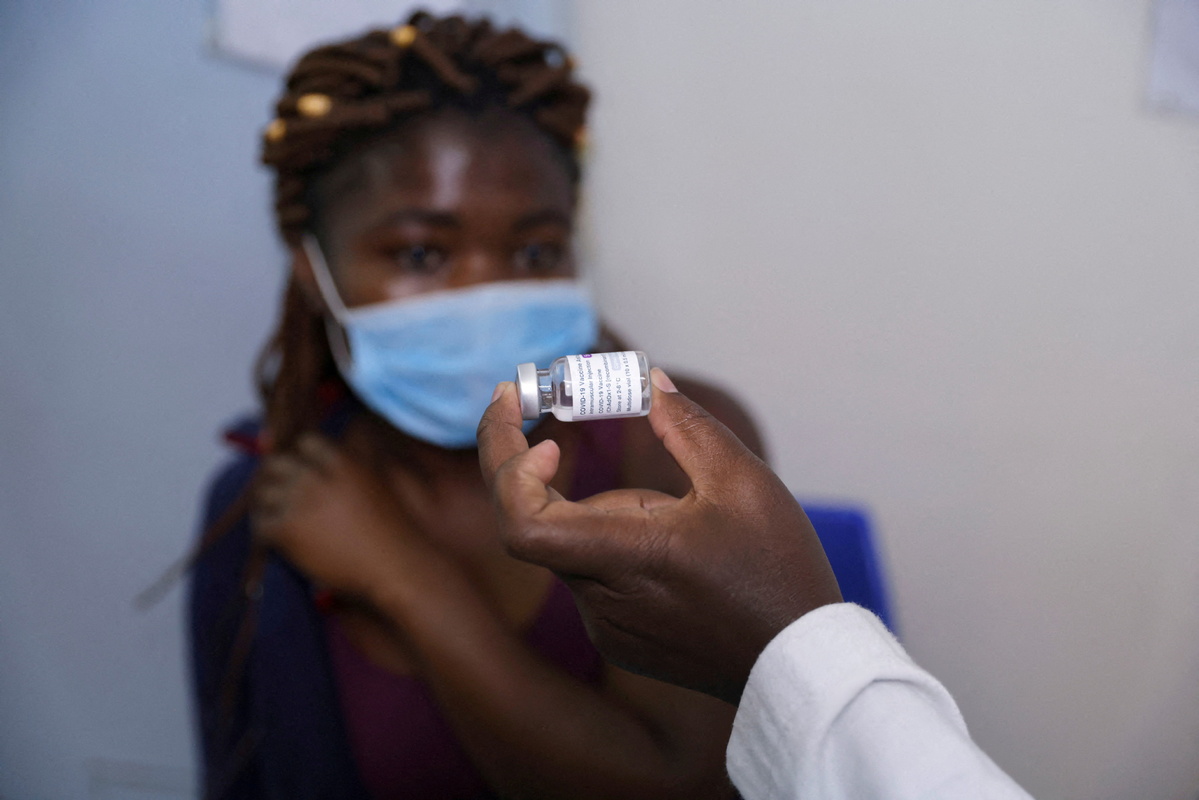Nearly expired vaccines harm COVID fight across Africa


There is growing apprehension in many African countries regarding COVID-19 vaccines donated by rich countries. Millions of doses shipped to the continent have had a short shelf life, leading to expiration before they could be administered-a fact that is now compounding Africa's inoculation bid amid the global health crisis.
Nigeria reportedly destroyed 1 million doses of expired COVID-19 vaccines in December. The problem appears to spring from rushed political decisions by rich countries to donate previously hoarded vaccines to developing countries.
Instead of receiving vaccines that might expire soon, poor countries are now turning them down. The United Nations Children's Fund has said that developing countries turned down more than 100 million doses of COVID-19 vaccines that were about to expire by the end of last year. In addition, around 15 million doses of vaccines donated by the European Union were turned down by poor countries in October and November.
For a region like Africa that has since vaccinated just 8 percent of the eligible population, turning down vaccines is a painful experience. Burundi, for example, has only managed to vaccinate a paltry 0.07 percent of its population-the lowest inoculation record in Africa. Collectively, 85 percent of Africa's population or about a billion people are yet to receive a single dose of COVID-19 vaccine, according to WHO Director-General Tedros Adhanom Ghebreyesus.
Donating nearly expired vaccines to Africa has presented three main challenges. First is the false hope that beneficiary countries would increase their vaccination numbers. Many African countries have no capacity to quickly distribute and administer vaccines with short life spans. Second, affected African countries are now forced to invest in vaccine waste treatment instead of putting their meager resources into additional vaccine purchases. Third, expired vaccines are driving a new form of vaccine apathy on the continent, with many people fearing that they could get expired vaccines.
This unfortunate scenario has forced the African Union to issue a strong advisory to countries that intend to donate COVID vaccines to the continent. Donors are now encouraged to declare in advance their intention to donate, including requisite numbers to be donated. In addition, donations should have a shelf life of not less than three months. These measures are aimed at giving African countries enough headroom to distribute and administer the vaccines.
Sending soon-to-expire vaccines to Africa runs counter to the rhetoric by donor countries of showing solidarity with developing countries in the pandemic fight. When it became clear that a vaccine against the pandemic was in the pipeline, there was palpable hope across the world, and more so in developing countries.
With weak health systems and doused economic vitality as a result of the pandemic, economies with few resources looked to a COVID-19 vaccine as a rational and sustainable way out of the pandemic.
Hardly surprising, though, it soon emerged that rich economies had preordered billions of doses of the COVID-19 vaccines, leaving few to be purchased by poor countries, most of which are located in Africa.
Pleas by the affected governments, the WHO and regional organizations such as the African Union for equitable distribution of vaccines went unheeded. Meanwhile, the pandemic was increasing in intensity with new waves fueled by more transmissible and deadly variants such as Delta and Omicron.
The only sustainable way to ensure that Africa has access to the vaccines it needs to protect its population is to encourage production on the continent.
An alternative route for Africa is to consider proposals by countries such as China that are already implementing joint vaccine production hubs in Africa. The Forum on China-Africa Cooperation 2021 commitments by China to donate 1 billion doses of COVID-19 vaccines, with 400 million doses produced on the continent, will not only enhance access to vaccines in Africa but also foster the strengthening of the continent's industrial capacity and health systems.
Rapid, equitable and sustainable vaccination is the ultimate way to beat the pandemic. As the spread of the Omicron variant has proved, only administered vaccines count. Advanced economies should read from the same script as the rest of the world and jointly work to stem the tide of the global health crisis.
The writer is a scholar of international relations.

































